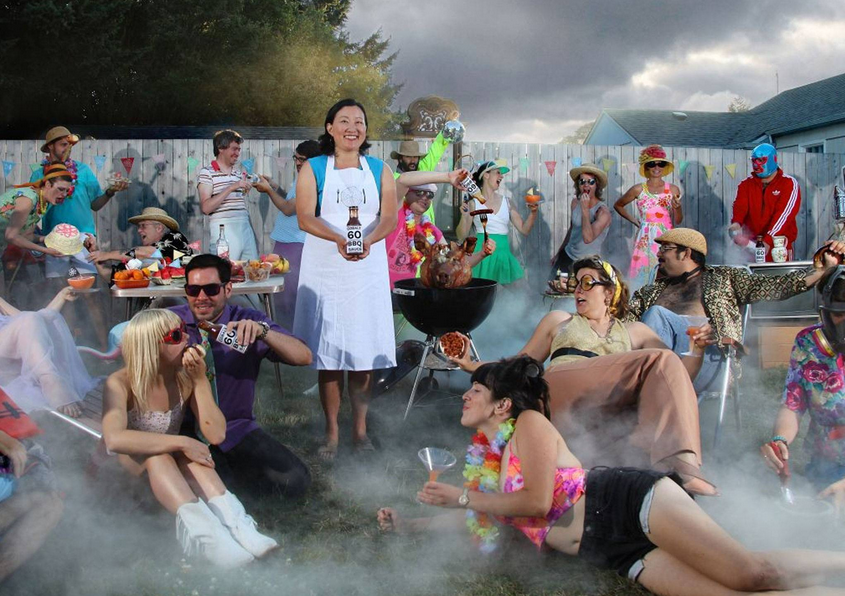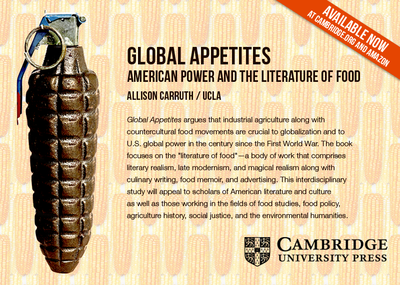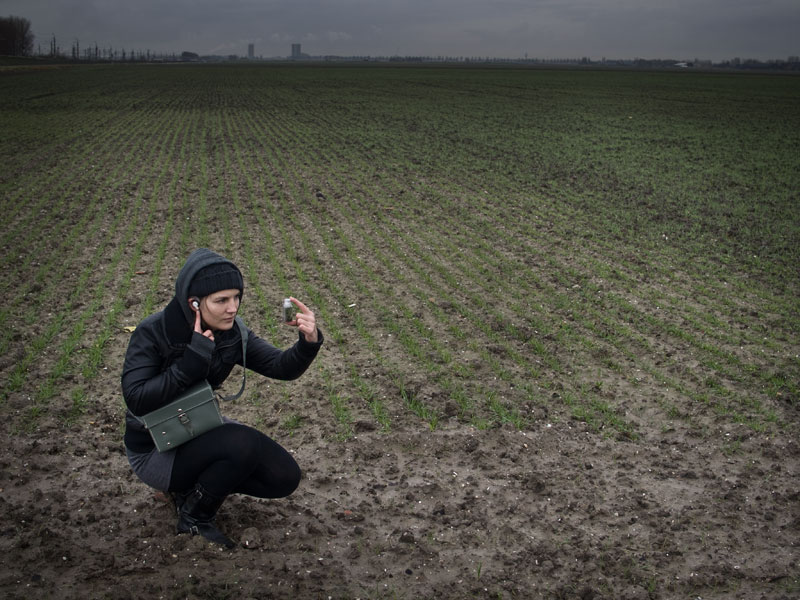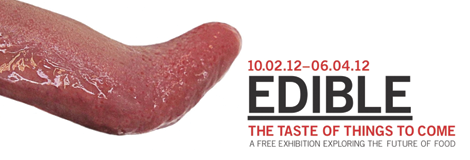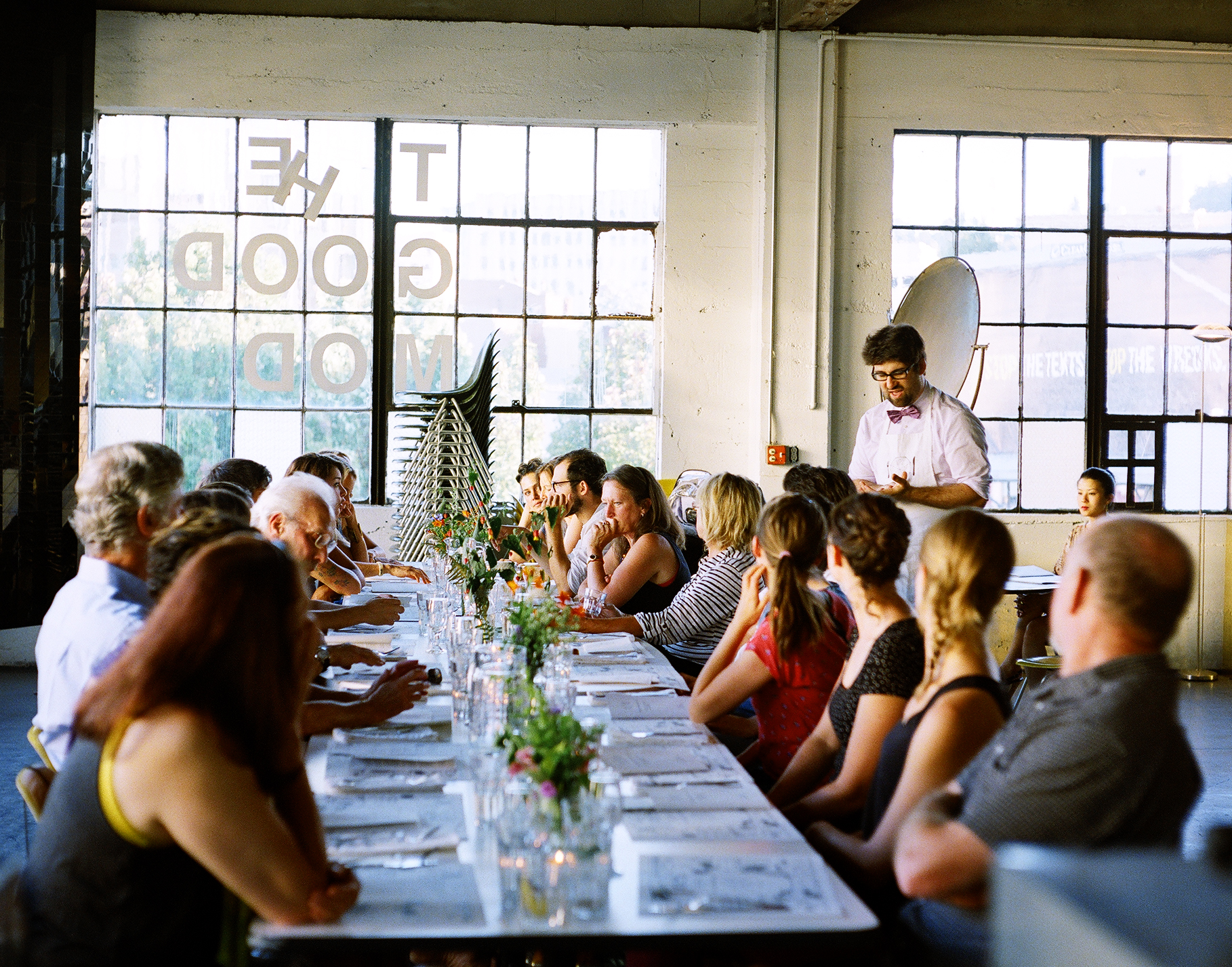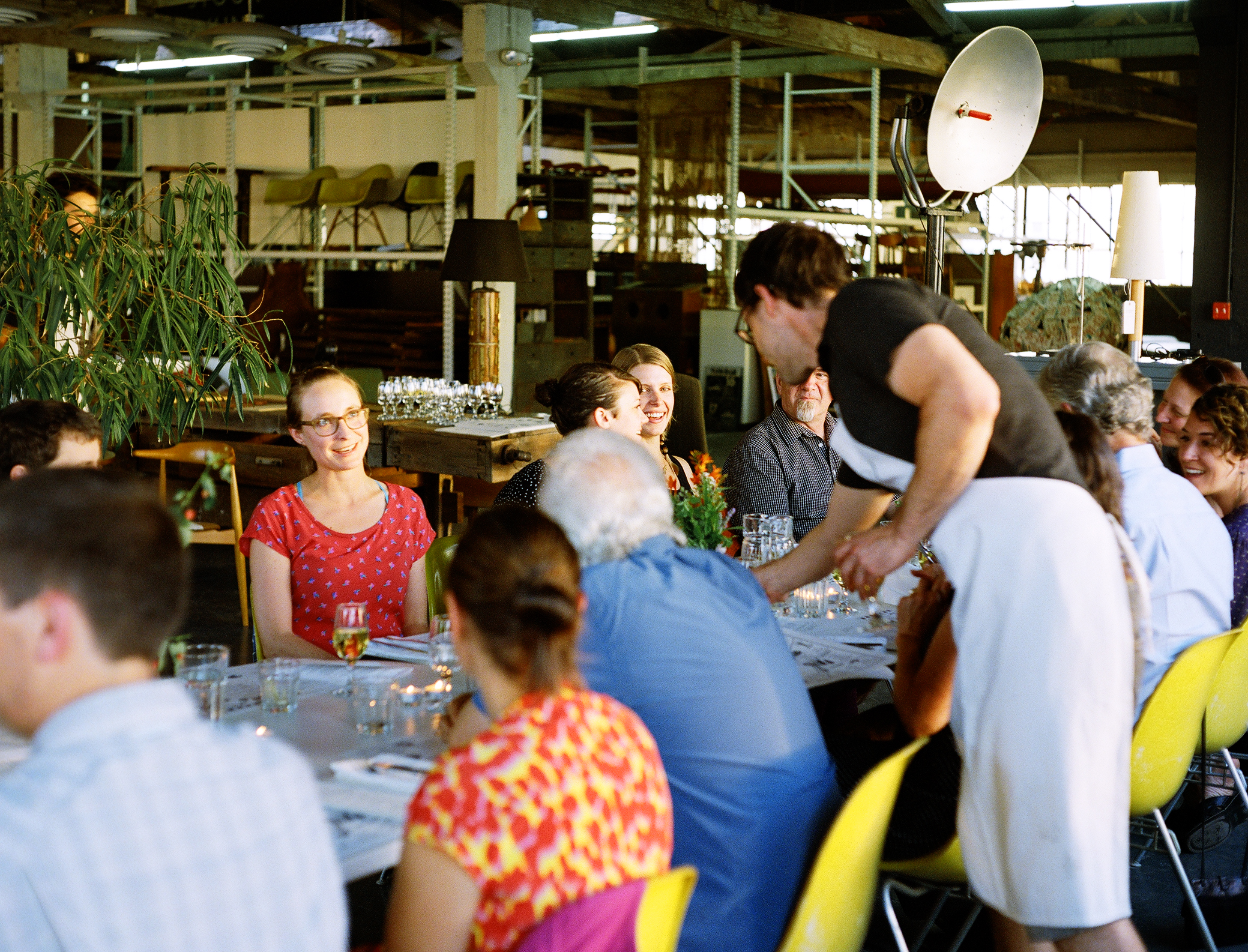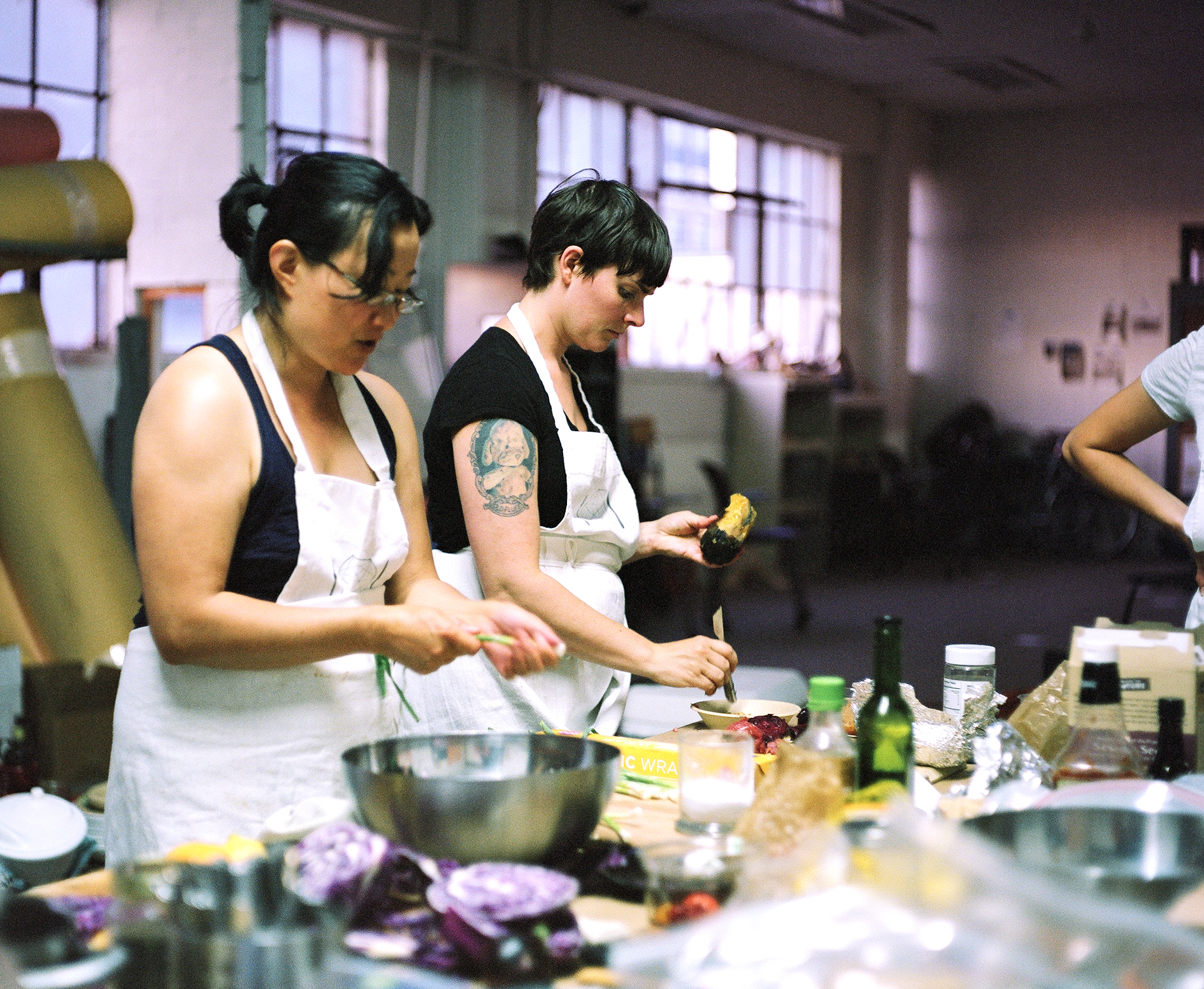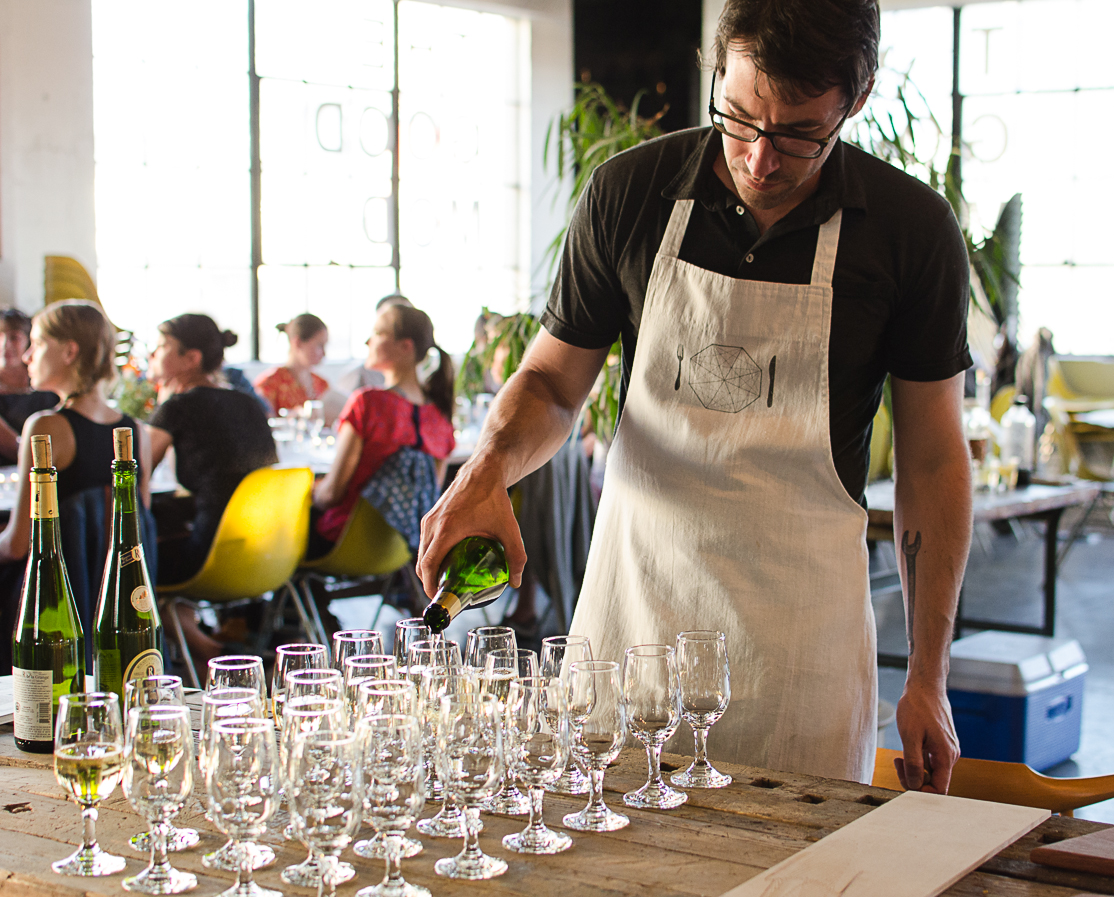I noticed that no one had written a Wikipedia entry for CyberAgrarianism (or FoodScaping for that matter!). Here is my first attempt at defining this tricky space. Used the introduction to the Agrarianism article as my starting point:
CyberAgrarianism has two common meanings. The first meaning refers to a social philosophy or political philosophy which values urban foodscaping over non-edible landscaping, commons-based-peer-production over industrial models, and sees urban foraging as a cultural practice that can shape and transform social values. It stresses the potential of networked and locative technologies to facilitate non-fiscal transactions and overcome the tragedy of the commons.
The philosophical roots of CyberAgrarianism include green urbanists who believe in increasing food security by promoting local food and short supply chains, and advocates for a sharing economy facilitated by emerging networked technologies (free cycle, car sharing services, etc.). Early practitioners of CyberAgrarianism include urban foodscaping advocates and geolocative geeks (see: HeadMap Manifesto and Ambient Commons) who understand urbanity and are interested in mapping and tagging the places where they live.
Urban foodscaping trends have influenced artists such as Fritz Haieg (Edible Estates) and Stroom Gallery’s FoodPrint activities who implement Urban FoodScaping projects under the banner of artistic production. The 21st century school of digital food mappers include groups such as Fallen Fruit and Future Farmers who create mapping and tagging tools for foraging edibles or urban farming that exist within the urban and peri-urban landscape. More Urban Foodscapes along with the tools to map and tag these locations form the basis of a CyberAgrarian movement.
However, there is a need to create continuity in this movement. There is a crisis of institutionalization. What began as a bottom-up movement can easily burn out as artists move on to their next project, websites go dead or databases are not updated or filtered.
Will CyberAgrarianism become the transit oriented development of the 2020s? Would that be a bad thing?


